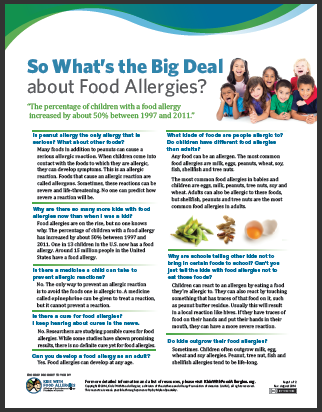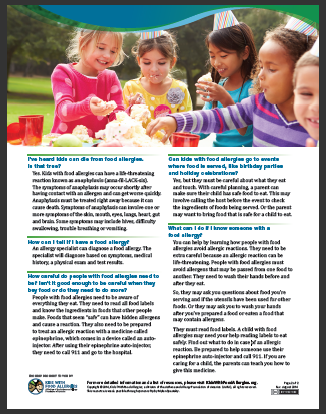Do you find it challenging to help people understand what it means to live with food allergies? This free two-page handout can help. The question and answer format is ideal for giving to teachers, caregivers, other parents, family members or anyone else who needs accurate information.
The questions addressed include:
- Is peanut allergy the only allergy that is serious? What about other foods?
- I’ve heard kids can die from food allergies. Is this true?
- Do kids outgrow their food allergies?
- What can I do if I know someone with a food allergy?
DOWNLOAD this printable community handout to share!
This handout was revised on August 30th, 2014 to reflect requests for changes from parents who contacted us. Thanks to those of you who provided valuable feedback to further improve this handout. We listened and responded to your suggestions.





Comments (39)